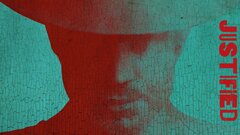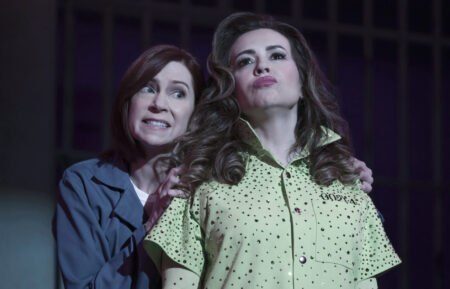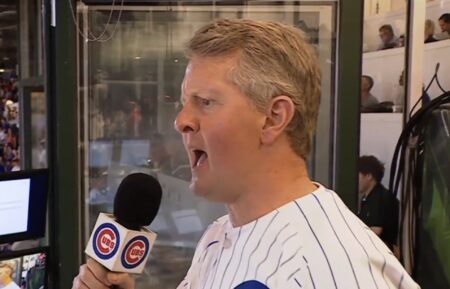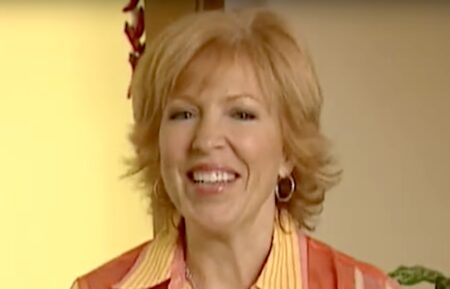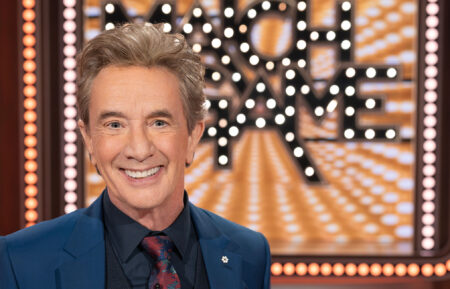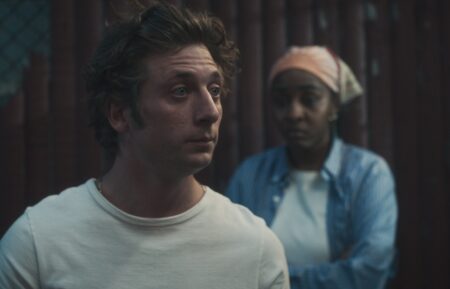‘Justified’ Finale: Executive Producer Graham Yost Breaks Down the Series’ End
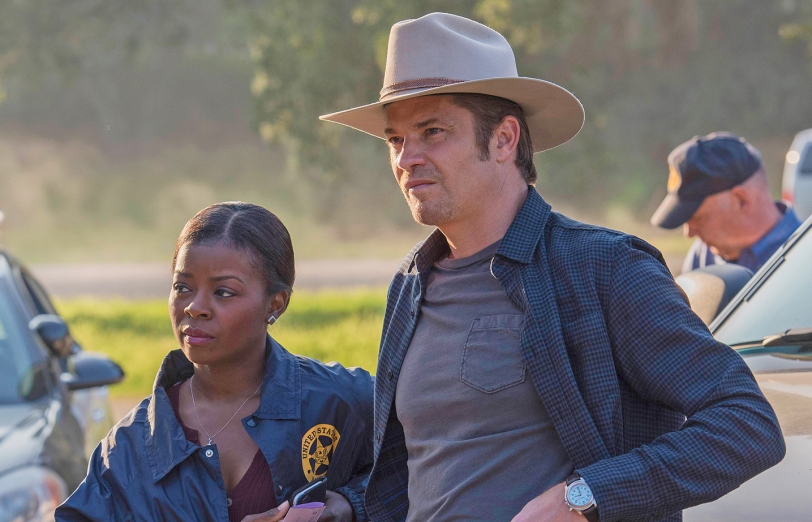
At the beginning of Justified‘s run, executive producer Graham Yost distributed bracelets to the cast and crew with the acronym “WWED?”—”What Would Elmore Do?” The bracelets were a reminder to stay true to the spirit of crime novelist Elmore Leonard, whose novella Fire in the Hole provided Justified with its premise.
Last night, the show went out the only way it could have: Not with a bang or a whimper, but with a conversation between two old friends and a series-ending exchange that harkened back to the show’s very first episode. After felon Boyd Crowder (Walton Goggins) asks Deputy U.S. Marshal Raylan Givens (Timothy Olyphant) why Raylan would visit him in prison to deliver some (fake) bad news, he hits upon the answer himself. “We dug coal together,” Boyd says, the two separated by bulletproof glass. “That’s right,” Raylan replies.
Yost called us up to explain the lack of a body count among the main cast, the four-year time jump, and some other details.
It’s interesting: You’d been building to the big showdown between Raylan and Boyd for six seasons, but it happens about halfway through the episode.
In the final episode of the series, we wanted to have a sense of where people’s lives went. Once we realized we were going to keep everyone alive, we needed to kind of check in with them. So in our first go-round, I remember thinking, maybe we should have the finale showdown happen with Boyd and Raylan halfway through, then do the time-jump. And we’ve done things like that before, where the big showdown in an episode happens in the third act, and then we have a fourth act. And it just turned out the fourth act in this episode is 20 minutes long. It was 15 pages in script, I didn’t know it was going to be 20 minutes of screen time. FX wondered if we could break it in two, and I said, “Please don’t,” and they said, “Fine. You can have your 20-minute run.”
Why doesn’t Boyd just commit suicide by cop? He doesn’t seem like he particularly wants to be alive at that point.
He doesn’t want to give Raylan that satisfaction. I think Boyd at that point would be fine with dying. He doesn’t get to go out in a blaze of glory, but…
Close.
Yeah, close. But it’s just, “You’re going to have to pay for this, Raylan, if you’re going to do it.” So he gives Raylan the choice. And Raylan chooses wisely.
Walton Goggins told us in one of the meetings early on this season you said, “What if nobody dies?” And he had to take a step back, because he’d envisioned Boyd’s story ending with a bullet.
[Laughs] It’s so funny on this show. The only person who didn’t want their character to die was Joelle [Carter]—she’d just fallen in love with Ava so much. Actually, Tim [Olyphant] never raised his hand and said, “Could Raylan die?” We never really considered killing off Raylan, ’cause that’s not Elmore. That’s not our show. And because Ava was victimized by these two guys, we didn’t feel she deserved to die. The show is not a tragedy. It’s not a story of moral decay where our hero has to pay.
The question came down to Boyd, and whether or not he would die. And there were versions where we talked about Raylan killing him, we talked about someone else killing him … We certainly explored all those ideas, but really it came down to, not so much what Boyd deserved, but what Raylan would do. And we felt that if Raylan killed him, then he has learned nothing. And that’s what the show, ultimately, had to be about. Raylan, as stated in the scene with Winona in the park in the jump forward, goes from being the angriest man Winona’s ever known, to the most stubborn man. And that’s growth.
That scene almost felt like Olyphant was just playing himself as a dad, with little Willa.
One of our little things people haven’t really picked up on, in that scene there’s not a lot of accent in Raylan. And that was really Tim Olyphant working with the kid, and taking him back to, I think, when his kids were younger. Just the joy of that. So that’s pure Olyphant right there.
Ava has a little nugget of her own now, too. When did you decide that night between her and Boyd in the hotel room would bear this fruit?
Pretty early on. We liked the idea of Ava having a child and having it be Boyd’s child and he could never know. Tim had a great idea for the scene where we see him, though. In the original outline for the sequence, it was written that Raylan would see the kid at the top, and he called me and said, “Hey, what if we didn’t see the kid until later on in the sequence?” And that’s the tipping point for Raylan. He is thinking pretty seriously about hauling her back in, but then he sees the kid, and he decides not to. And I said, “That’s a great idea.” So that’s how we did it. And that also shows Raylan’s growth as well.
One loose end is Constable Bob (Patton Oswalt). Last we saw him, he was pretty badly shot. Did he live?
Bob lives. [Executive producer] Dave Andron and I had a moment where we looked at each other and went, “Oh my God, we never said anything about Bob.” And my answer to that is: In the world of Justified, if you don’t see someone zipped up in a body bag, they’re fine. And the other thing is, if we’d put a line in like that in the finale, it would’ve felt like what it was, like we were just trying to check off that box.
Was there anything you wanted to do that you didn’t get to, in six seasons?
You know, there’s the Island of Lost Pitches, where lost pitches go, and it’s very full up in the Justified neighborhood. Once we move on from them, though, we don’t hang onto them, if that’s the right term. We just let them go, and we’ll remind each other occasionally: “Remember we were going to do a big race track robbery? That was funny.” But it’s not anything that is a big regret. We’re happy with the story we told.

